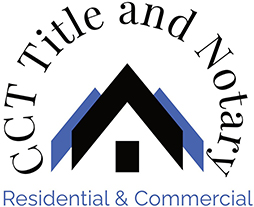Why Title Insurance?
Without title insurance, small issues discovered during the title search could prevent the lender from loaning money on a property, therefore preventing you from selling or refinancing. Title insurance protects against claims from defects. Defects are things such as another person claiming an ownership interest, improperly recorded documents, fraud, forgery, liens, encroachments, easements and other items that are specified in the insurance policy. A title policy protects against any financial losses as a result of these issues, whether the error was intentional or accidental. While buyers are not required to purchase title insurance, it is highly recommended. Lenders always require a mortgagee title insurance policy as security for their investment, just as they may require other types of coverage as additional security over their investment in the property too.
TITLE INSURANCE
Protect What You Invest In.
A title insurance policy offers the best protection against potential defects that can remain hidden despite the most thorough search of public records in a real estate transaction. The one-time purchase protects the deed to the purchaser for as long as they own the property.
There are two main types of policies:
Owner’s Policy
An Owner’s Policy is valid for as long as the property is owned by the purchaser, and up to the purchase price or value on that property. The one time premium paid is optional – either at the time of purchase or at a later date. Nevertheless, an Owner’s Title Insurance Policy provides a lifetime of protection to that specific owner against title defects that could otherwise affect that purchaser’s claim to the parcel of property.
Lender’s Policy
A Lender’s Policy protects the interest of the lender up to the value of the loan issued and is typically always required. A new policy must be issued for every new loan issued on a piece of property. The one time premium is paid at the time of the closing, and concludes once the loan is paid off.
What is covered under a standard policy?
A Standard Policy Guarantees:
- You are the owner and have legal right of access to the property.
- Prevention of losses due to encumbrances or liens on the property, except for those listed on the policy.
- Your title cannot be rejected by a subsequent buyer.
What does title insurance protect you from? A lot.
- Documents executed under false, revoked or expired powers of attorney
- False impersonation of the true land owner
- Undisclosed heirs
- Improperly recorded legal documents
- Prescriptive rights in another not appearing of record/not disclosed by
- survey
- Failure to include necessary parties to certain judicial proceedings
- Defective acknowledgements due to improper or expired notarization
- Corporate franchise taxes as liens on corporate real estate assets
- Gaps in the chain of title
- Mistakes and omissions resulting in improper abstracting
- Forged deeds, mortgages, wills, releases of mortgages and other
- instruments
- Deeds by minors
- Acts which appear absolute, but which are held to be equitable mortgages
- Conveyances by an heir, devisee or survivor of a joint estate who attempts
- to attain title by ill-gotten means
- Inadequate legal descriptions
- Issues involving delivery of conveyancing instruments
- Deeds and wills by persons lacking legal capacity
- Federal and state inheritance and gift tax liens
- Errors in tax records
- Demolition and substandard building liens
- Administration of estates and probate of wills of missing persons who are
- presumed deceased
- Issues of rightful possession of the land
- Issues concerning the rightful conveyances by corporate entities
- Acts by foreigners who may lack legal capacity to hold title
- Legal capacity of foreign personal representatives and trustees
- Rights of divorced parties
- Issues involving improper marital status
- Conveyances in violation of public policy
- Misinterpretation of wills and ancillary instruments
- Claims by creditors of decedent against property improperly conveyed
- Special tax assessments
- Forfeitures of real property due to criminal acts
- Conveyances and proceedings affecting rights of military personnel
- protected by the Soldiers’ and Sailors’ Civil Relief Act
- Issues concerning interests noted in financial statements filed under
- Uniform Commercial Code
- Interests arising by deeds of fictitious parties
- Adverse possession
- Lack of jurisdiction or competency of persons in judicial proceedings
- Community property issues
- Utility easements
- False affidavits of death or heirship
- Intestate estates
- Probate matters
*Subject to certain limitations set forth in the policy
How is title insurance different from other insurances?
Other types of insurance that protect your home focus on possible future events and charge an annual premium. Title insurance differs from other insurances in that it is a one time purchase that protects the deed to the purchaser for as long as that person owns the property.
What is the value of title insurance in comparison to other insurances?
Examine the cost of title insurance over the life of the policy versus other types of insurance and you’ll find that policyholders receive a great value for the money spent. If a homeowner were to pay the national average cost of a title insurance policy and live in their home for just five years, the annual average cost of the title insurance policy would be less than $200 a year. By comparison, the national average cost of a homeowner’s insurance policy is over $700 per year.
Did you know?
Over half of all real estate transactions have a problem somewhere in the chain of title. Crescent City Title handles all ranges of real estate transactions, from the smallest cash sales to large transactions involving multiple parties, loans, legal defects, etc. The company handles any and all document preparation that may be needed, as well as assisting the needs of those involved in the transaction throughout its entirety.

